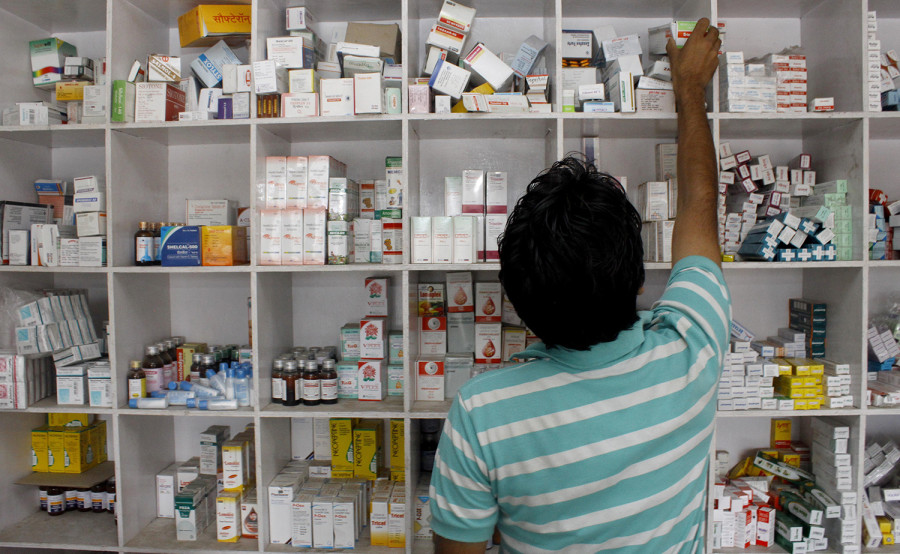Health
Substandard medicines being distributed from state-run health facilities
Of the 285 essential drugs examined, 41 were found to be of substandard quality.
Arjun Poudel
Medicines from the list of essential drugs which were found to be substandard in laboratory tests a few months ago are still being distributed free of cost from the state-run health facilities across the country.
Nepal Health Research Council, which promotes national as well as international health research, had collected 285 essential medicines from the state-run health facilities—health posts, primary health care centres, and district hospitals— and sent them for testing to the laboratory of Department of Drug Administration in the last fiscal year [2018/019].
Upon testing, the laboratory found 41 medicines, including paracetamol tablets, paracetamol pediatric oral suspension, folic acid tablets, metronidazole tablets and metformin, to be substandard.
The department, which is the national regulatory body of the drug market in the country, charged a fee to the council to run the examination of the identified drugs. The department also submitted its report to the council but it did not think it necessary to recall those drugs.
"Some substandard medicines are already in the market and some are still being distributed from health facilities," an official at the council told the Post on condition of anonymity since he is not authorised to speak with the media before the report’s unveiling.
The Ministry of Health and Population provides more than 70 types of essential medicines for communicable and non-communicable diseases to all district hospitals with at least 25 beds. Patients get more than 60 types of essential medicines from primary healthcare centres and 35 types of medicines from health posts.
The collection and examination of the medicines are conducted independently by the department. The identification of substandard medicines is conducted on a random basis. However, even when the department directs the drug manufacturing companies about the substandard quality of their products, the drugs find their way into the market.
The department, however, does not have the capacity to effectively monitor all the pharmacies operating across the country. Of over 21,000 pharmacies operating across the country, the department can barely monitor 15 percent of them.
Jagat Nepali, chief of Allapot Health Post at Kageshwori Manohara Municipality in Kathmandu, said that he was unaware of the report on the quality of essential drugs being distributed from the government-run health facilities.
"We aren’t aware of the quality of the medicines," said Nepali, "We have been giving the medicines to those who come to our health facilities."
With the implementation of federalism, the responsibility of purchasing essential drugs has been transferred to the local governments. Most local governments have been purchasing medicines from local suppliers, some even from local pharmacies, without running quality checks.
Nepali said that neither individuals nor the authorities concerned have come to them with regards to the quality of the medicines being distributed by the health post. “Nobody has instructed us to halt distribution or recall the medicines found be substandard,” he said.
Earlier, concerned agencies under the Ministry of Health and Population used to purchase medicines in bulk through global tenders. This ensured the quality and supply of medicines to health facilities across the country.
Of the seven provinces across the country, none have a laboratory to examine the quality of medicines.
Every year, the government purchases essential medicines worth Rs 1.85 billion and distributes them free of cost from the state-run health facilities.
Mahendra Prasad Shrestha, spokesperson at the Health Ministry, said the local governments were purchasing their own medicines and they had no mechanism in place to ensure quality.
“I am unaware of the lab report but it wouldn’t be untrue to say that there have been no quality checks of medicines since the implementation of the three tiers of government,” said Shrestha.




 24.62°C Kathmandu
24.62°C Kathmandu















